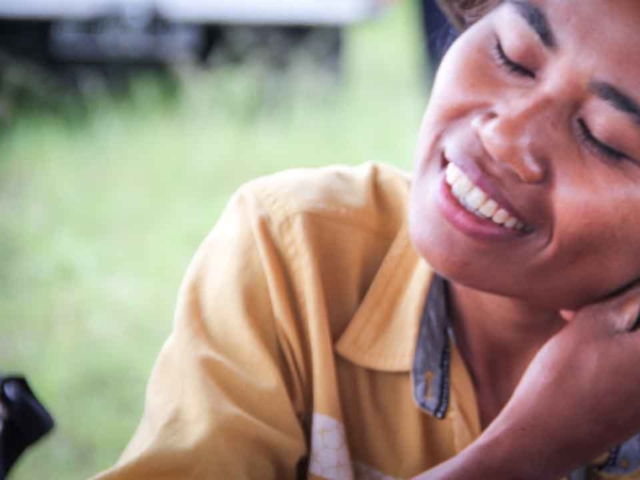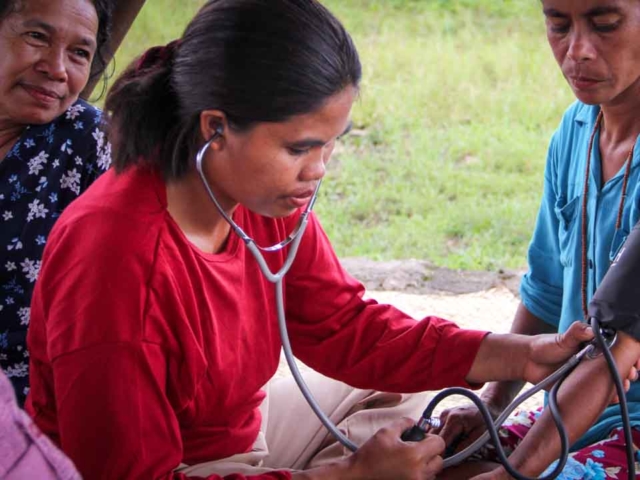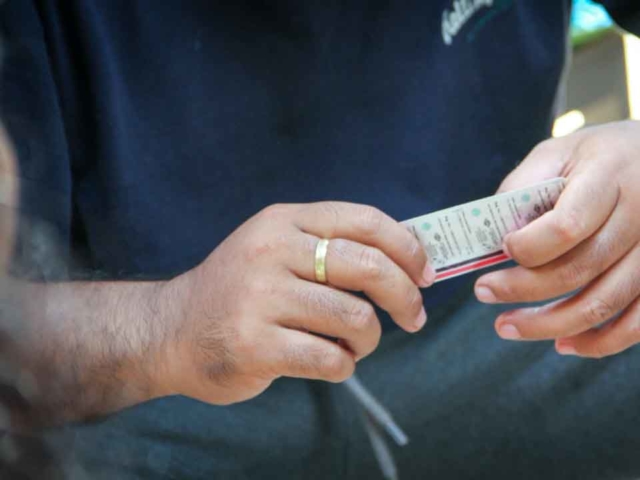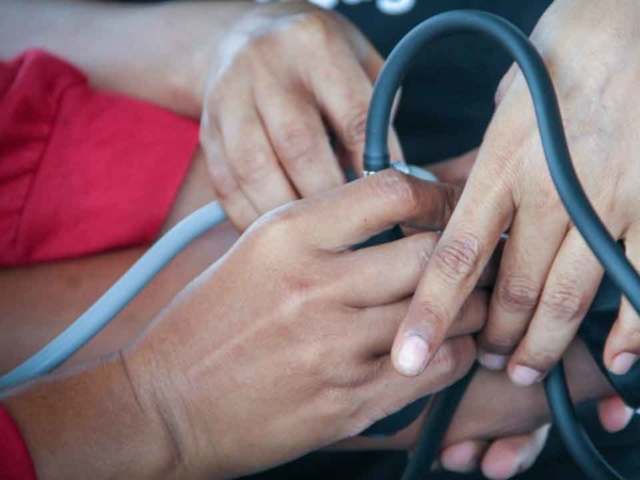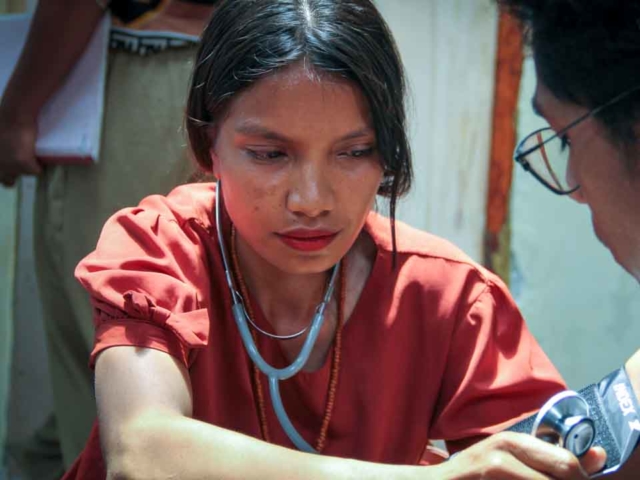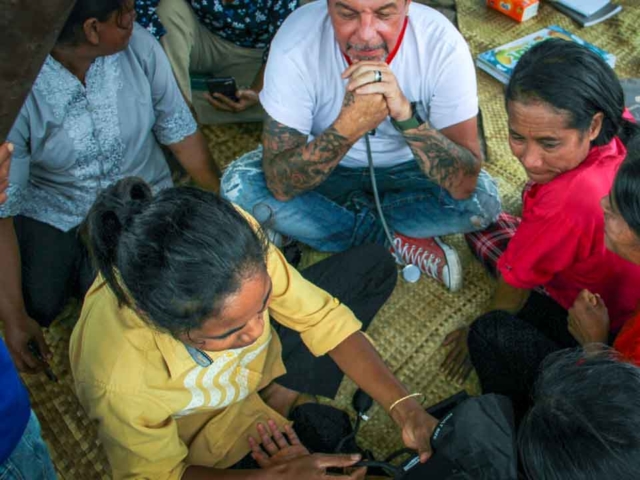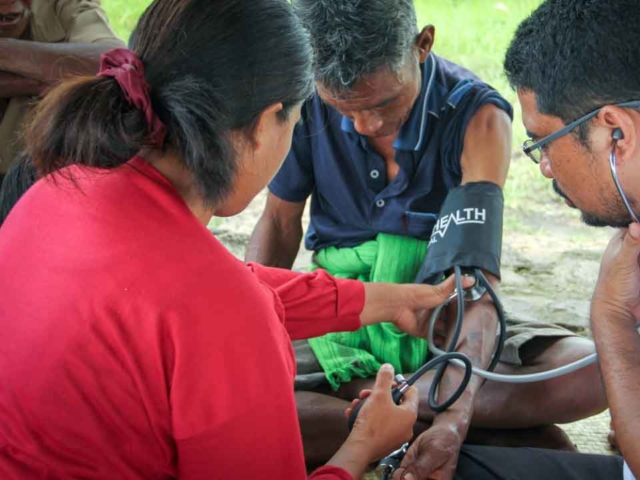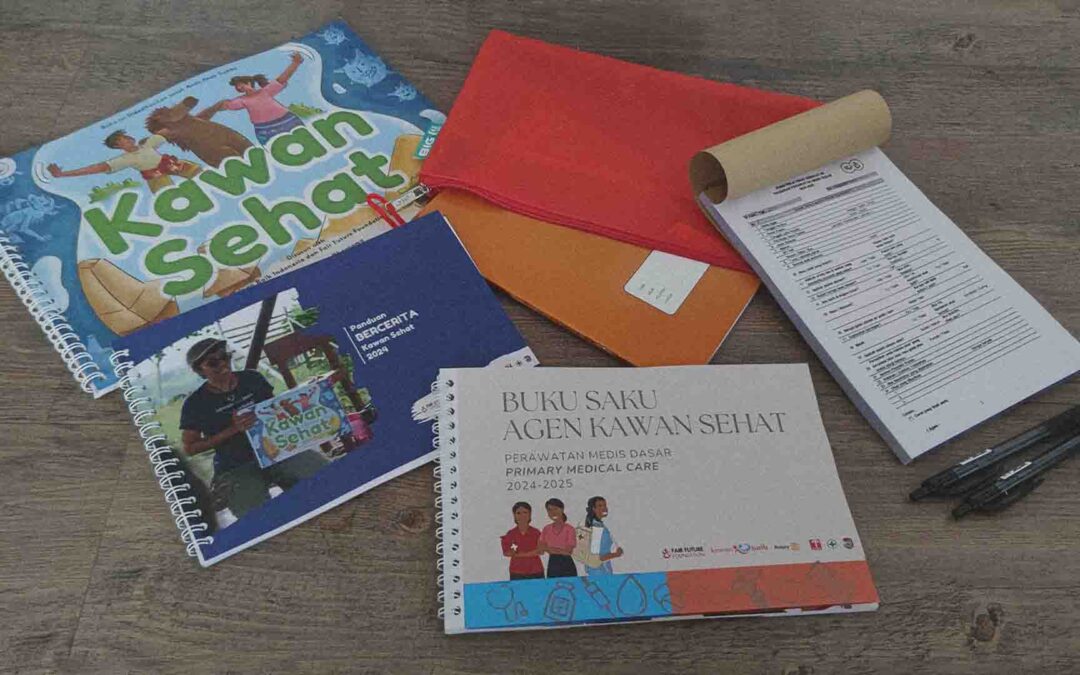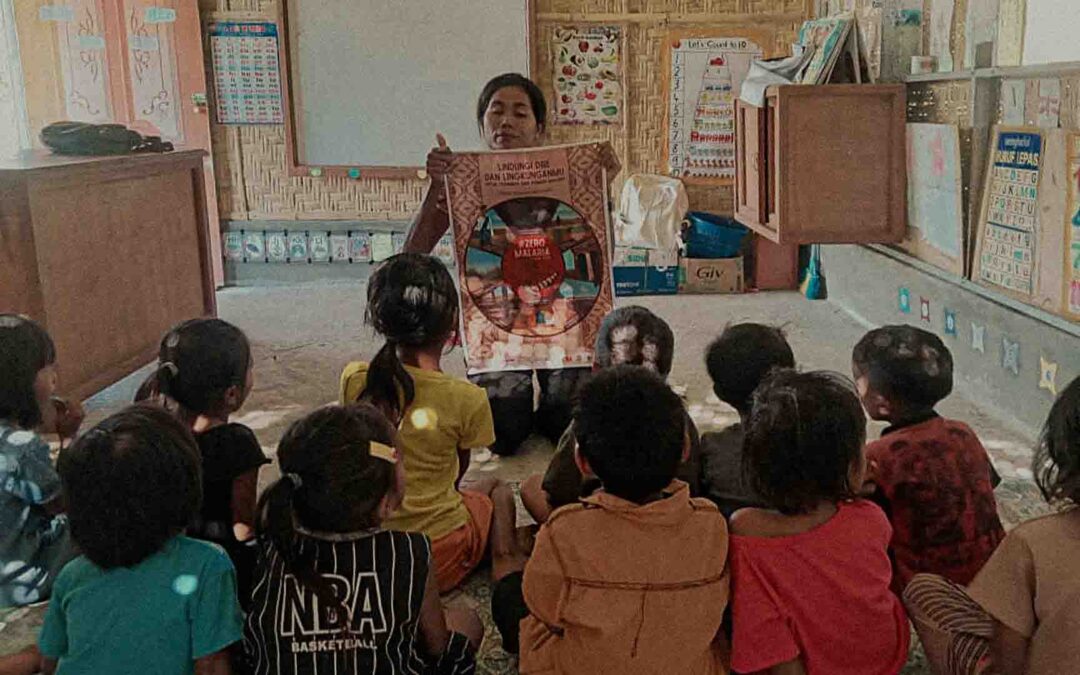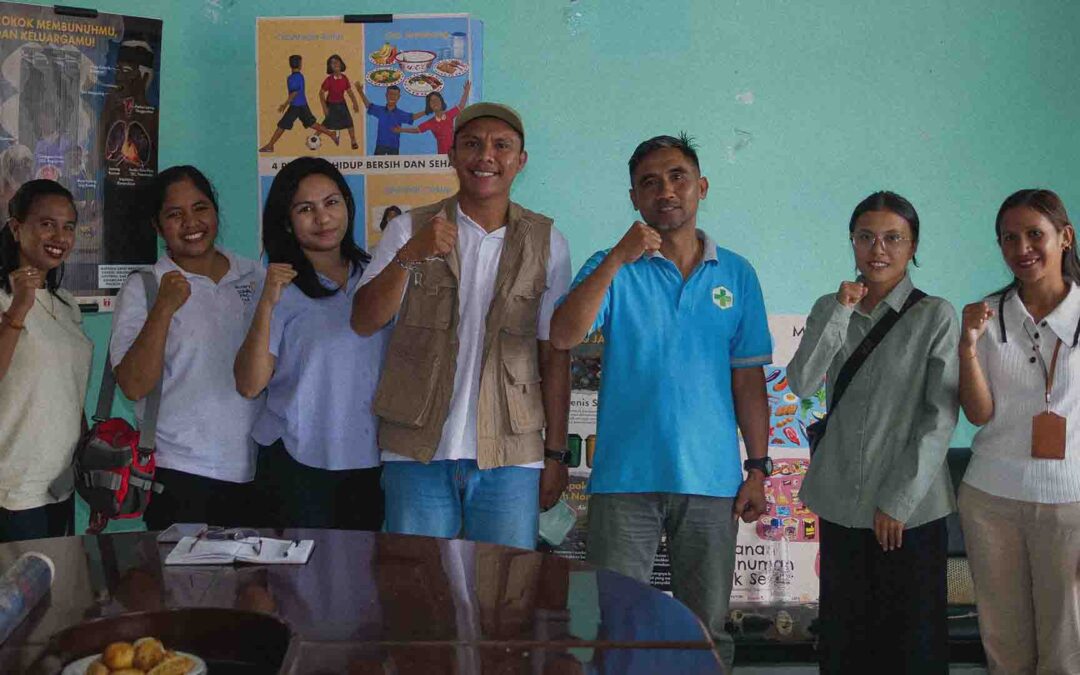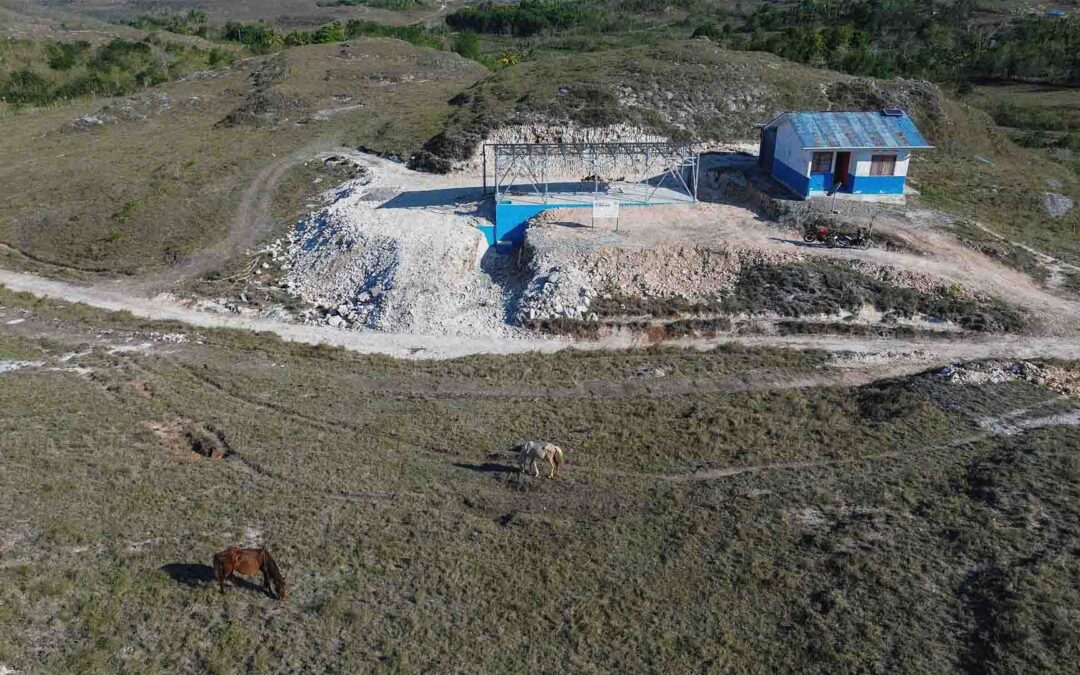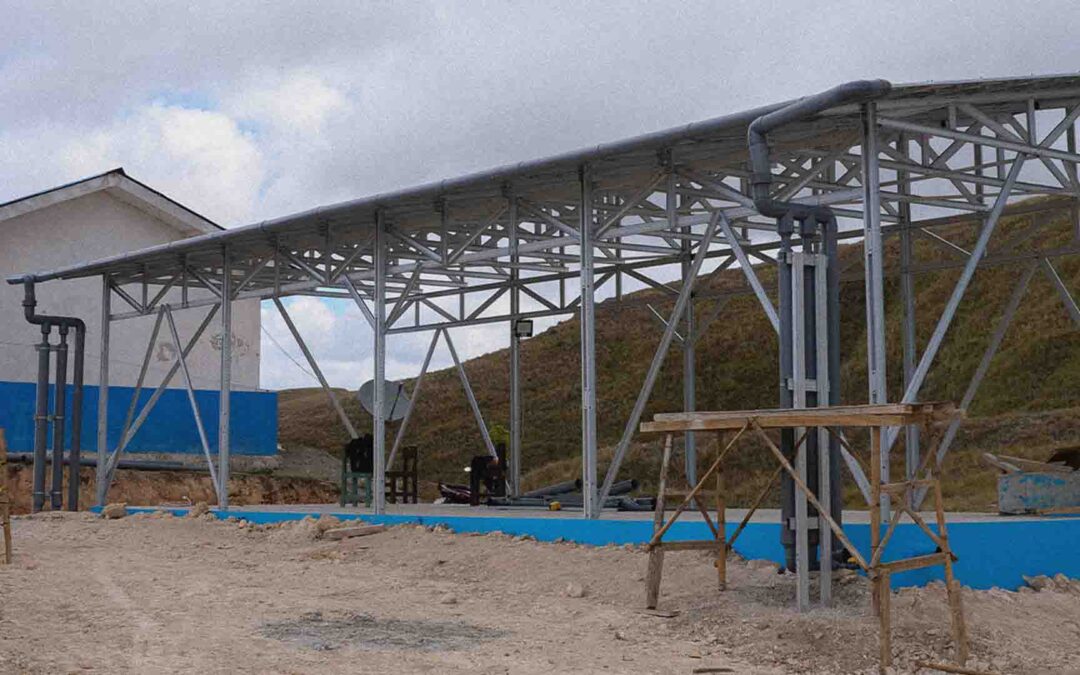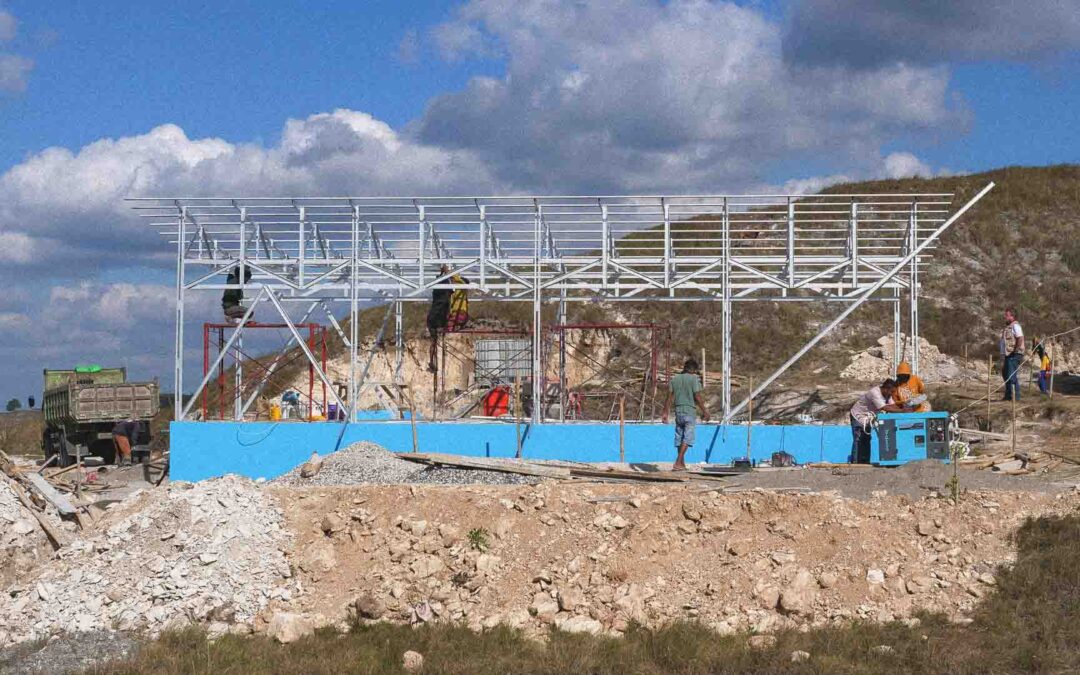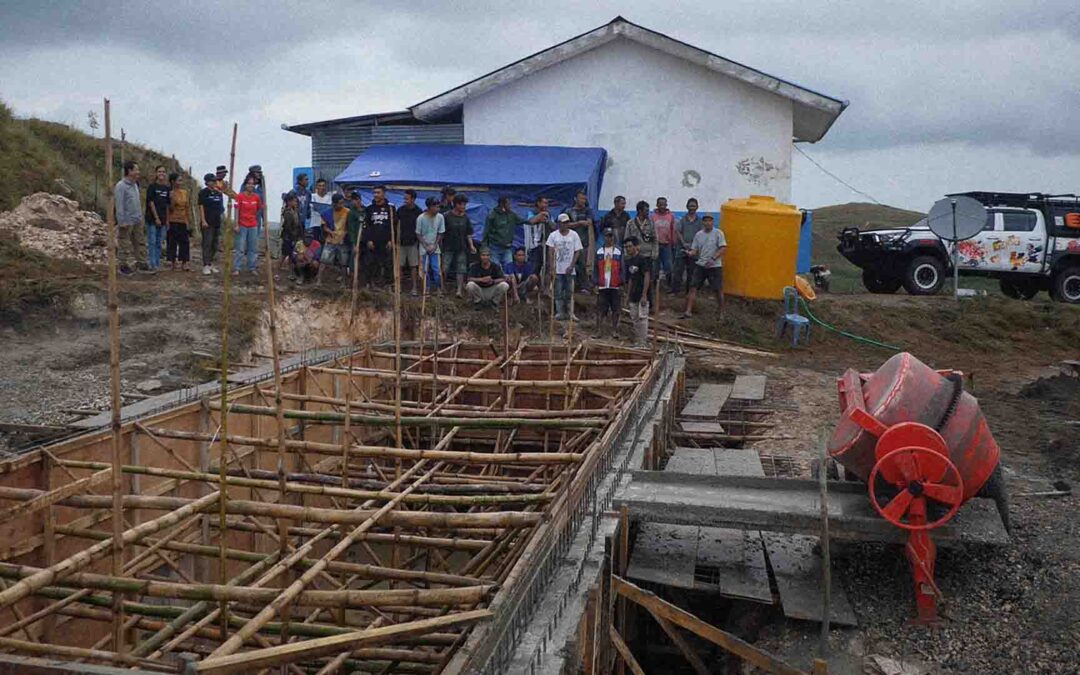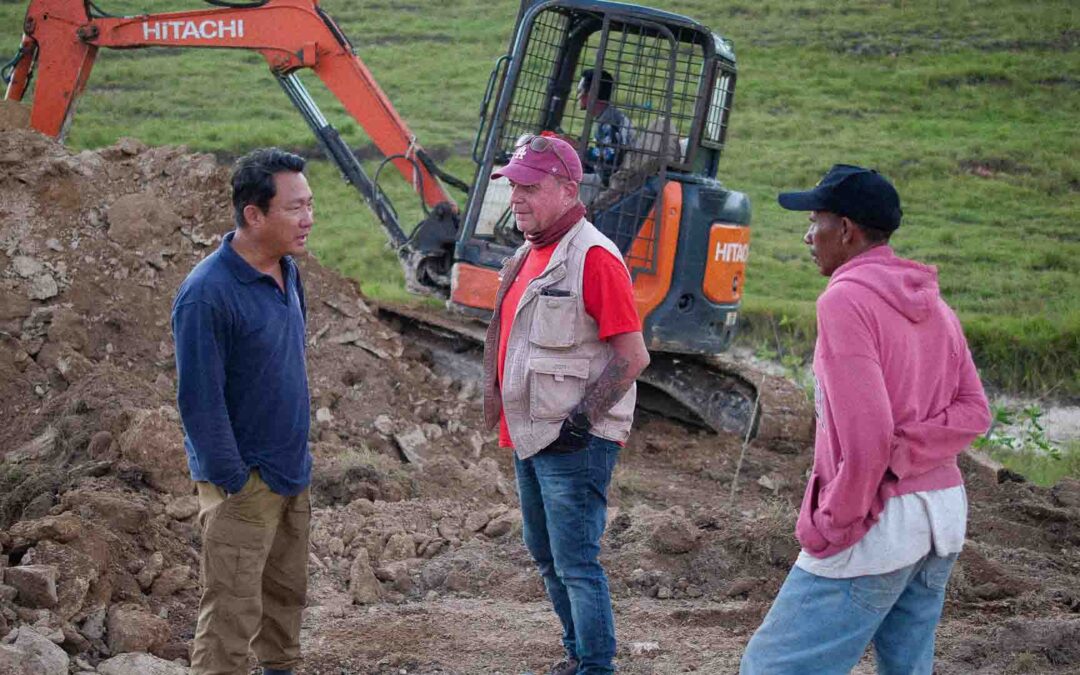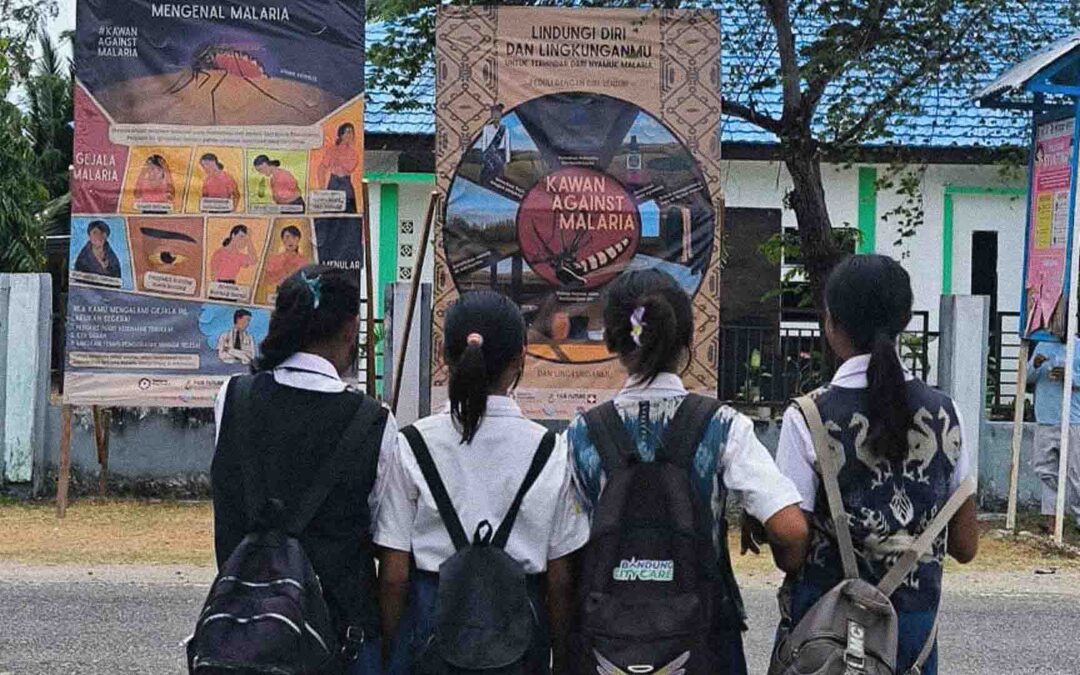The primary medical care program is still breaking new ground. We give teachers in ultra-rural areas the ability to measure the blood pressure of a suffering patient.
And in case of high blood pressure, to be able to provide appropriate medical treatment and medication. The PMC primary care program agents also advise how to prevent any serious health problem.
This training on the prevention of innovative cardiovascular diseases is genuinely unique. Once again, we train teachers from the most isolated schools who care. These women are not health professionals. It’s ambitious but beneficial and will save lives for sure. This complementary module: “How to measure blood pressure and react in the event of a problem”, was given by the teams of Fair Future, Kawan Baik and Sumba Volunteer. As part of the multiple evaluations of the PMC program, we have introduced this additional medical training.
High blood pressure, or hypertension, is a significant health problem in rural villages without access to medical care. High blood pressure can lead to serious health problems, including heart disease, stroke, and kidney damage.
Unfortunately, many people in these rural areas are unaware of their blood pressure status. Even if they are, they may not have access to medical care to manage their condition. Several factors can contribute to high blood pressure in rural villages. One of the biggest is the lack of access to healthy food options. Many people in these areas depend on a diet high in salt and processed foods, which can raise blood pressure. Additionally, lack of physical activity and stress can also contribute to hypertension.
Without medical care, focusing on prevention and lifestyle modifications to manage blood pressure is essential. In this sense, PMC and Kawan Sehat program give advice and tools to:
It is important to note that lifestyle modifications, as advocated in the Kawan Sehat program, can help manage high blood pressure and other health issues that are common here in these ultra-remote areas of East Sumba. It should be noted that questions on tobacco consumption and its impact on blood pressure and cardiovascular diseases were asked.



